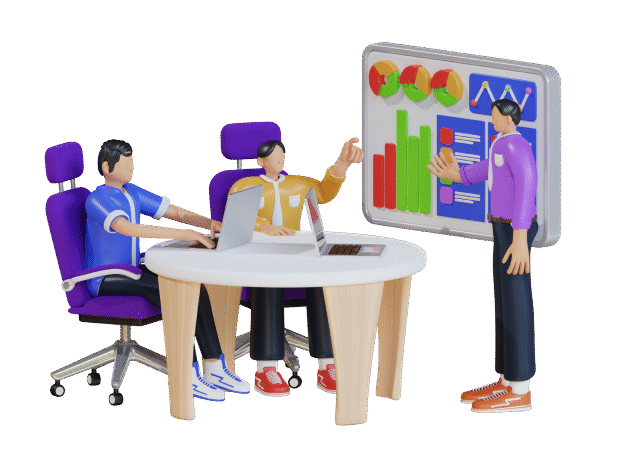In today’s rapidly evolving tech landscape, software is no longer just a supporting element; it’s the backbone of most successful businesses. From streamlining internal operations to delivering exceptional customer experiences, software development plays a crucial role in competitive advantage. However, navigating the complex world of software development can be challenging, especially for companies lacking in-house expertise or facing specific hurdles. This is where a software development consultant can become an invaluable asset.
A software development consultant brings specialized knowledge, objective perspective, and proven methodologies to your organization. They’re not permanent employees, but rather strategic partners who help you define your needs, overcome obstacles, and ultimately achieve your software development goals. But how do you know when you need one? This article delves into the top signs that indicate your organization could significantly benefit from hiring a software development consultant.
Lack of In-House Expertise for Specific Technologies or Methodologies:
This is perhaps the most common reason companies seek external expertise. The technology landscape is vast and constantly evolving, with new languages, frameworks, and methodologies emerging regularly. Your in-house team might be proficient in certain areas, but lack the specialized knowledge required for a specific project.
- Scenario: Your company wants to build a mobile app using React Native, but your team primarily uses Java and doesn’t have the necessary experience with JavaScript frameworks or mobile development best practices.
- The Consultant’s Role: A consultant specializing in React Native can provide the necessary technical expertise, guide the development process, and train your team to maintain the app in the long run. They can also offer insights into mobile-specific challenges like platform fragmentation, app store optimization, and user experience considerations.
Why this matters: Attempting to build a complex software solution with a team lacking the necessary expertise can lead to costly mistakes, delays, and ultimately, a subpar product. A consultant bridges this gap, ensuring the project is executed effectively and efficiently.
Stagnant Development Processes and Low Productivity:
Are your software development projects consistently running over budget and behind schedule? Is your team struggling to keep up with the demands of the business? This could be a sign of inefficient development processes.
- Scenario: Your team is using outdated waterfall methodologies, resulting in rigid requirements, late integration, and difficulty adapting to changing business needs.
- The Consultant’s Role: A consultant with expertise in Agile methodologies like Scrum or Kanban can help you transform your development processes, improving collaboration, accelerating development cycles, and fostering a more responsive and adaptive environment. They can also help implement tools for project management, version control, and continuous integration/continuous delivery (CI/CD) to further streamline workflows.
Why this matters: Stagnant processes lead to wasted resources, missed opportunities, and a competitive disadvantage. A consultant helps you identify bottlenecks, implement best practices, and improve overall productivity.
Difficulty Defining Project Scope and Requirements
A clear understanding of project scope and requirements is crucial for success. Without a well-defined plan, projects can easily become scope creep nightmares, leading to endless iterations, cost overruns, and ultimately, failure.
- Scenario: You have a general idea for a new software product, but you’re struggling to articulate the specific features, functionalities, and user experiences required.
- The Consultant’s Role: A consultant can facilitate workshops, conduct stakeholder interviews, and perform market research to help you define a clear and detailed project scope, including user stories, acceptance criteria, and technical specifications. They can also help you prioritize features based on business value and technical feasibility, ensuring you focus on building the most impactful functionality first.
Why this matters: A well-defined project scope acts as a roadmap, guiding the development team and ensuring everyone is aligned on the goals and objectives. This minimizes ambiguity, reduces the risk of miscommunication, and increases the likelihood of a successful outcome.
Need for a Fresh, Objective Perspective
Sometimes, being too close to a problem can cloud your judgment. An internal team might be entrenched in existing processes or resistant to new ideas.
- Scenario: Your team is facing a complex technical challenge, but they are stuck in a rut and unable to find a viable solution.
- The Consultant’s Role: A consultant brings an unbiased, objective perspective to the table. They can analyze the situation from a fresh angle, identify underlying issues, and propose innovative solutions that your internal team might have overlooked.
Why this matters: A fresh perspective can unlock new possibilities and break through roadblocks. A consultant can challenge assumptions, introduce new ideas, and help your team think outside the box.
Requirement for Expert Guidance on Technology Selection
Choosing the right technology stack is a critical decision that can significantly impact the success of your software project. With so many options available, it can be difficult to determine which technologies are the best fit for your specific needs and budget.
- Scenario: You need to build a new e-commerce platform, but you’re unsure whether to use a headless CMS like Contentful, a monolithic platform like Magento, or a custom-built solution.
- The Consultant’s Role: A consultant can conduct a thorough assessment of your requirements, considering factors like scalability, security, performance, and maintainability. They can then recommend the most appropriate technology stack based on your specific needs, budget, and long-term goals.
Why this matters: Choosing the wrong technology can lead to performance issues, security vulnerabilities, and scalability limitations down the road. A consultant helps you make informed decisions and avoid costly mistakes.
Concerns About Scalability and Performance
As your business grows, your software needs to scale accordingly. A poorly designed system can quickly become a bottleneck, hindering your ability to serve customers and capitalize on new opportunities.
- Scenario: Your website experiences slow loading times and frequent crashes during peak traffic periods.
- The Consultant’s Role: A consultant can perform a comprehensive performance audit of your existing system, identify bottlenecks, and recommend solutions to improve scalability and performance. This might involve optimizing database queries, caching strategies, or infrastructure architecture.
Why this matters: Scalability and performance are crucial for user experience, customer satisfaction, and revenue growth. A consultant helps you ensure your system can handle increasing demand and deliver a seamless user experience.
Security Vulnerabilities and Compliance Concerns
In today’s digital landscape, security is paramount. Data breaches and security vulnerabilities can have devastating consequences for your business, including financial losses, reputational damage, and legal liabilities.
- Scenario: You’re concerned about the security of your customer data and want to ensure your system is compliant with relevant regulations like GDPR or HIPAA.
- The Consultant’s Role: A consultant can conduct a security audit of your system, identify vulnerabilities, and recommend security best practices. They can also help you implement security measures like encryption, access control, and intrusion detection. Furthermore, they can assist in navigating the complexities of compliance regulations and ensure your software meets the required standards.
Why this matters: Protecting your data and complying with regulations is essential for building trust with your customers and avoiding legal repercussions. A consultant helps you mitigate risks and ensure your system is secure.
Need for Independent Code Review and Quality Assurance
Even the most experienced developers can make mistakes. An independent code review can help identify potential bugs, security vulnerabilities, and performance issues before they make it into production.
- Scenario: You’re about to release a new version of your software and want to ensure it’s free of critical bugs.
- The Consultant’s Role: A consultant can perform a thorough code review, identifying potential issues and recommending improvements. They can also help you establish a robust quality assurance process, including automated testing, code analysis, and performance testing.
Why this matters: Code reviews and quality assurance are essential for ensuring the quality, stability, and security of your software. A consultant helps you catch errors early and avoid costly fixes later on.
Requirement for Development Team Augmentation During Peak Load
Sometimes, your internal team might be overwhelmed with work, particularly during peak seasons or when launching new products.
- Scenario: Your team is struggling to meet deadlines due to a sudden increase in workload.
- The Consultant’s Role: A consultant can provide temporary development resources to augment your internal team, helping you meet deadlines and maintain productivity. This allows you to scale your team quickly and efficiently without the overhead of hiring full-time employees.
Why this matters: Team augmentation ensures you can meet deadlines, avoid burnout, and continue to deliver high-quality software even during periods of high demand.
Preparing for a Major Technology Transformation or Migration
Migrating to a new technology platform or undertaking a major software transformation project can be a complex and risky undertaking.
- Scenario: You’re planning to migrate your legacy system to a cloud-based platform.
- The Consultant’s Role: A consultant can help you plan and execute the migration process, minimizing disruption and ensuring a smooth transition. They can assess your existing system, identify potential challenges, and develop a detailed migration plan. They can also help you choose the right cloud platform, migrate your data, and optimize your system for the cloud environment.
Why this matters: A well-planned and executed migration can significantly improve the performance, scalability, and cost-effectiveness of your software. A consultant helps you avoid common pitfalls and ensure a successful transition.
Conclusion
Hiring a software development consultant can be a strategic investment that pays dividends in the long run. By addressing the signs mentioned above, you can leverage their expertise to improve your development processes, build better software, and achieve your business goals. Remember to carefully evaluate potential consultants, ensuring they have the necessary technical skills, industry experience, and communication skills to effectively address your specific needs. When chosen wisely, a software development consultant can be a valuable partner, helping you navigate the complexities of modern software and unlock its full potential.



